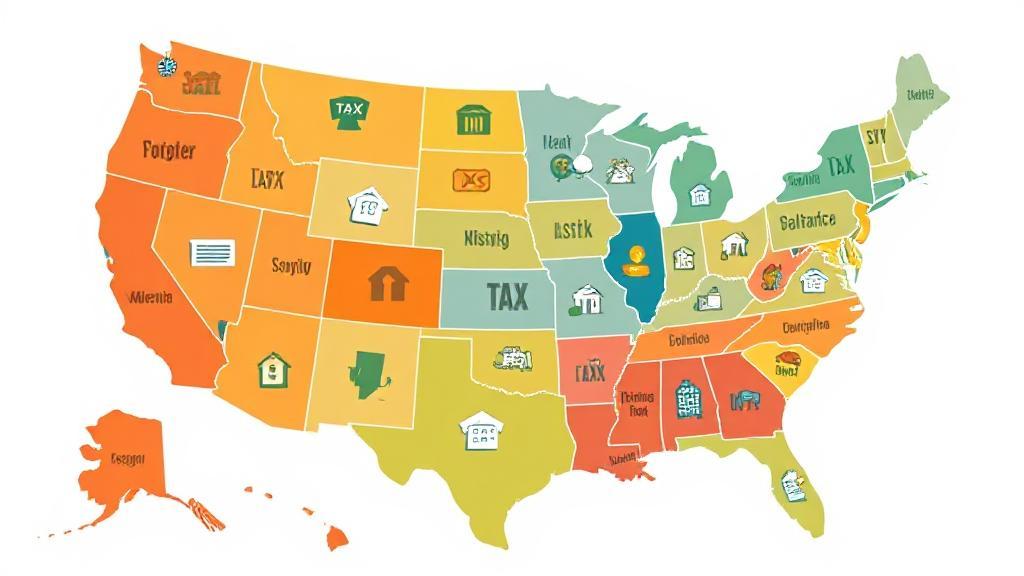What Are State Taxes?
State taxes are mandatory contributions imposed by individual states to fund public services, infrastructure, and government operations. Unlike federal taxes, which are consistent nationwide, these taxes serve as a primary source of revenue for state governments, funding essential services such as education, healthcare, infrastructure, and public safety.
Types of State Taxes
-
Income Tax:
- Most states impose a tax on personal income, with rates and brackets varying widely
- Seven states have no income tax: Alaska, Florida, Nevada, South Dakota, Texas, Washington, and Wyoming
- For more information, visit the Tax Foundation's State Individual Income Tax Rates and Brackets
-
Sales Tax:
- Collected on most retail purchases
- Five states have no sales tax:
- Alaska
- Delaware
- Montana
- New Hampshire
- Oregon
- Check the Sales Tax Institute's State Sales Tax Rates
-
Property Tax:
- Typically assessed by local governments on real estate and sometimes personal property
- Funds:
- Public schools
- Local infrastructure
- Emergency services
- Parks and recreation
- The Lincoln Institute of Land Policy provides detailed property tax data
-
Other Common State Taxes:
- Vehicle registration fees
- Gasoline tax
- Cigarette and alcohol taxes
- Estate and inheritance taxes
- Franchise taxes
- Gross receipts taxes
How State Taxes Affect You
Residency and Filing Requirements
- Your state of residence typically determines your tax obligations
- Income earned in multiple states may require filing in each state
- Most states require annual returns by April 15th
- Many states offer electronic filing options
Deductions and Credits
States often provide various deductions and credits, including:
- Property tax credits
- Child care expenses
- Education expenses
- Energy efficiency improvements
- Retirement income exclusions
State Tax Planning and Compliance
Record Keeping
Maintain organized records of:
- Income documents (W-2s, 1099s)
- Expense receipts
- Property tax statements
- Vehicle registration fees
Professional Assistance
Consider consulting with a qualified tax professional who understands your state's specific tax laws. Find a certified tax professional
Resources for Further Exploration
- Internal Revenue Service (IRS): Provides links to state tax agencies
- Federation of Tax Administrators (FTA): Comprehensive list of state tax agencies
- National Conference of State Legislatures (NCSL): Research on state tax policies
- Tax Foundation: Information on state tax structures and rates
Recent Trends and Considerations
States are increasingly exploring new revenue sources and modernizing tax systems. Key trends include:
- Digital services taxation
- Remote worker taxation policies
- Environmental impact fees
- Cannabis taxation in states where legal
"In tax matters, complexity is not virtue; simplicity alone is not a virtue. The challenge is to get the right degree of complexity to match the underlying economic reality."
- Michael J. Graetz, Tax Policy Expert
